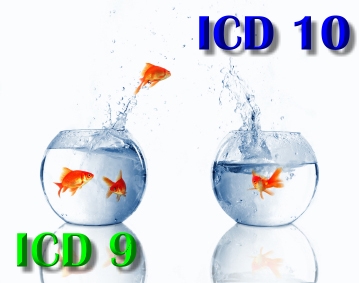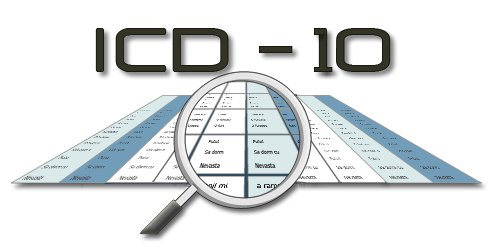
The evolution of ICD-9 to ICD-10 codes will literally leave some medical offices, hospitals, and physicians in the dust of the past. ICD-9 codes have been outdated in most other countries, but the delay to implement ICD-10 in the United States is still going to catch some offices unprepared.
The ICD-10 code mandate will officially roll out October 1st, 2015. Medical offices, hospitals, and physicians still using ICD-9 codes are quickly running out of time to get trained and up-to-date on the new ICD-10 codes.
However, acknowledgement and end-to-end testing is already underway. Early birds will have the benefit of working through the issue of getting their in-house systems to work with the Medicare system before the actual roll-out with the help of trainers, testers, and even their Medicare Administrative Contractors.
Thus, to get the most help with the switch, it pays to start early.
An Evolution from ICD-9 Codes to ICD-10
The jump in evolution from ICD-9 codes to ICD-10 codes can be likened to the time the human species got language capabilities. This isn’t just a small shift with a few more codes and some new code mappings.
There are four times more ICD-10 codes than ICD-9 codes to learn for this new roll-out. It is like getting a whole new vocabulary! For offices that don’t have the time to master this new language, it might be time to consider having an ICD-10 coder on staff in the medical office to help with the transition.
Like someone who hires a translator to help them with a foreign language, an in-house ICD-10 coder can perform the same function except with codes. They can understand the nuances of the new system and help everyone in the office to make sure claims continue to be processed without interruptions.
If they can train multiple people on your own staff as well, ahead of time, this can greatly increase the efficiency of your office or hospital before the deadline, rather than relying on only one person to do the job.
When it comes to evolution of ICD-9 codes to ICD-10 codes, be prepared to spend time getting to know the details involved and how to properly roll out the new codes.
Human Intervention is Required
In this day and age of software translators, you might wonder why you can’t use a simple translator instead of a human being to do the same task. As mentioned earlier, it’s not the case of a simple upgrade in the meaning of a code or a new mapping to another code.
It really is like learning an entirely new language with different rules. The reason for that is not solely because of the huge number of new codes, although that’s part of it. It’s also because the new language even has new codes that didn’t exist in the past.
For every ICD-9 code available in the past, you can have up to 10 ICD-10 codes that might now apply instead. Like an Eskimo has many words for snow, depending on what type of snow is out there, the ICD-10 mandate has many more specific codes that help medical offices, hospitals, and physicians get more detailed about the services they are providing.
Like new words in a new language each of those new codes also have nuances on how they will be reimbursed and what they actually mean. They are far more specific and the human coder needs to understand not just what codes are available, but how they differ within a particular subset of services. Only then will the claims be processed correctly.
The Consequences of a Failure to Properly Implement ICD-10 Codes
What’s going to happen to those places that aren’t ready to switch from ICD-9 codes to ICD-10 over in time? Like a person who goes to a foreign country with only a few words learned in the new language, they will not be able to communicate well with others or the Medicare system.
They will not only have trouble get claims accepted, but will also have trouble simply detailing what services were provided. In the worst case, they will put in the wrong codes and then not get reimbursed correctly or not at all.
A simple translator is not the answer. The new ICD-10 mandate requires knowledge of the services provided, the new codes, and how to speak the language so that Medicare can understand and accept the claim.
You don't want to get stuck with multiple claims that are rejected by the new system and have to put inputted several times. Or, end up being paid only a tiny fraction of what the actual services cost to provide.
Change Is In The Air
It may seem that the deadline is a long way off. However, staff training, assessment, and end-to-end testing are already underway.
Hospitals and medical offices will have to compete to hire ICD-10 coders and the more in demand they are, the more they will end up costing later.
Systems need to be assessed to make sure that they dovetail with other systems so that there are no bottlenecks that cause claims to back up and go unpaid.
Those that already have things well in hand will be able to breeze through the deadline while those that waited too long will have to go to the back of the line for help, at a time that is bound to be hectic and confusing for everyone.
Start by getting some of your staff trained and running through assessment tests early and you will have a little advantage over those that may be blindsided when the switch takes place.
If you haven't started preparing for the switch, you are already behind schedule. ICD-9 codes will be going the way of the dinosaurs on October 1st, 2015.
To stay in compliance and continue to have your claims accepted by Medicare, it's important to get started making those changes today.
Don't delay any further and get the help you need to be ready for the switch before it's too late.

-1.png)

